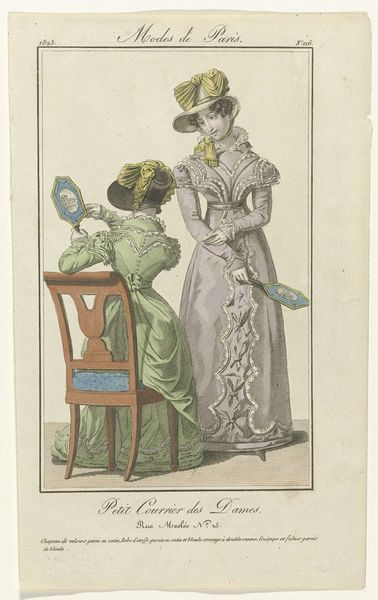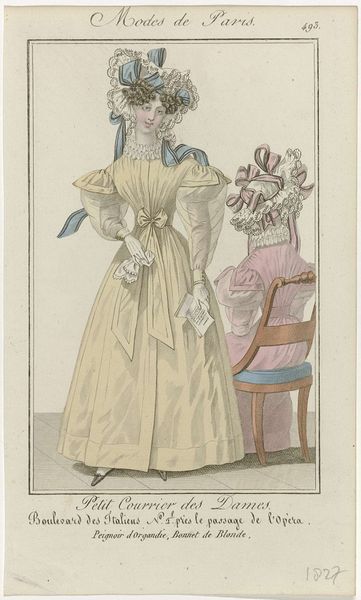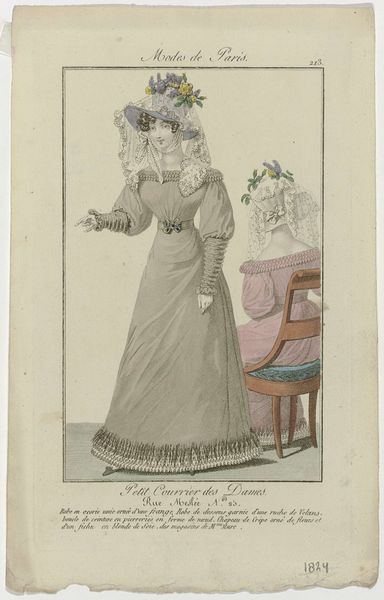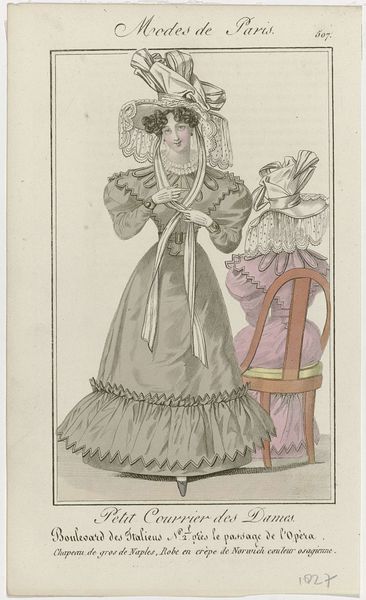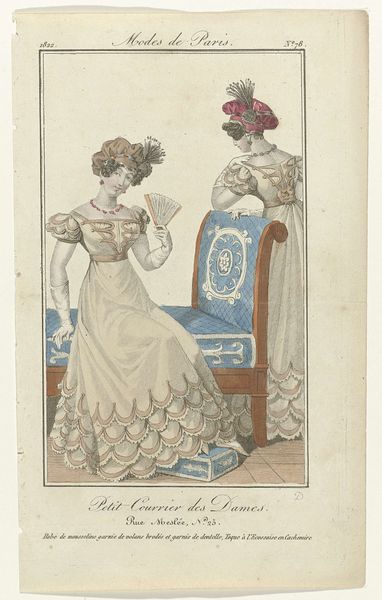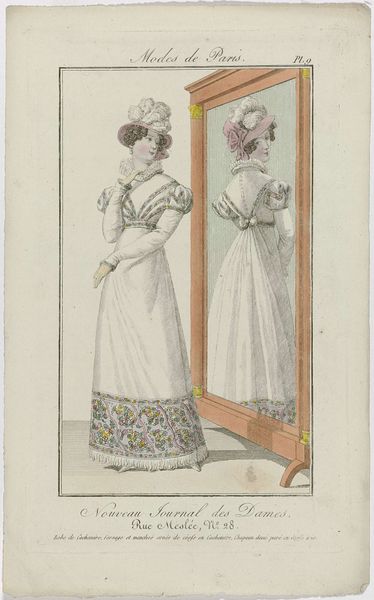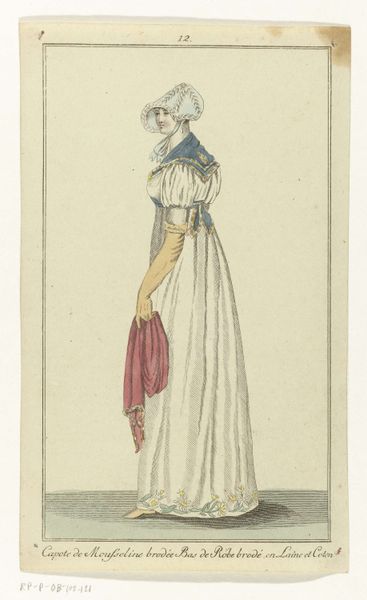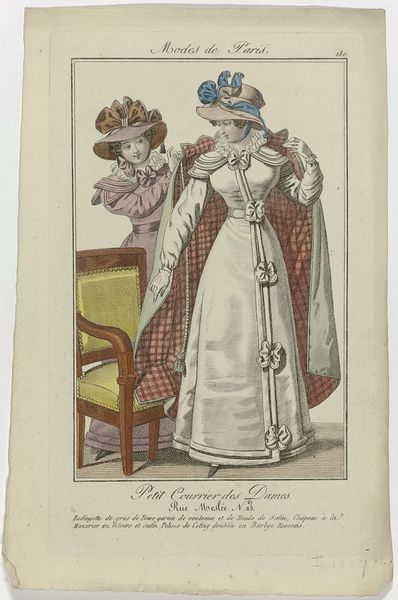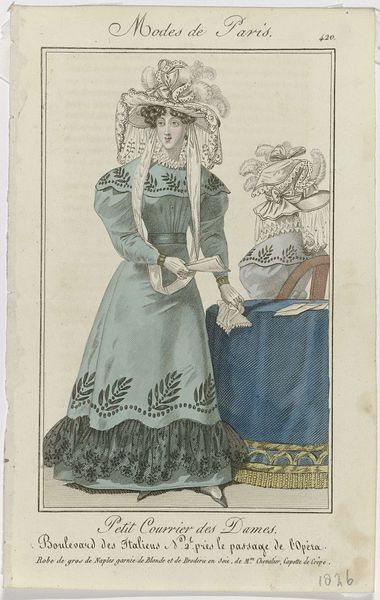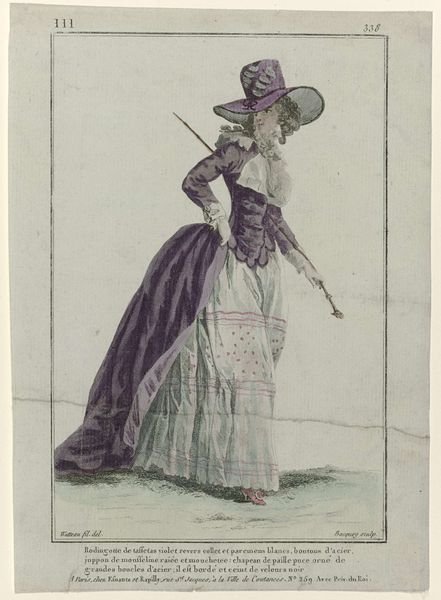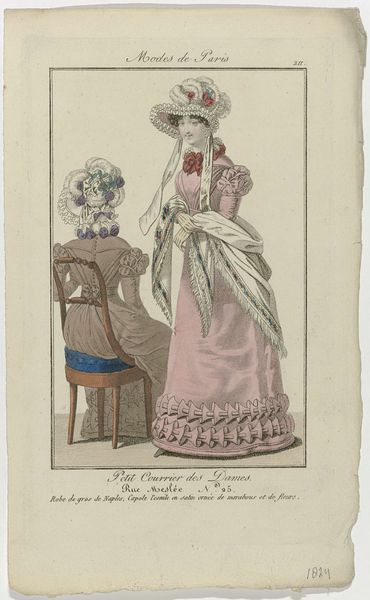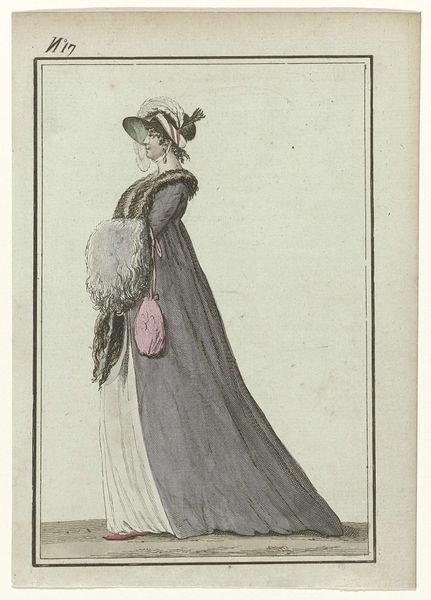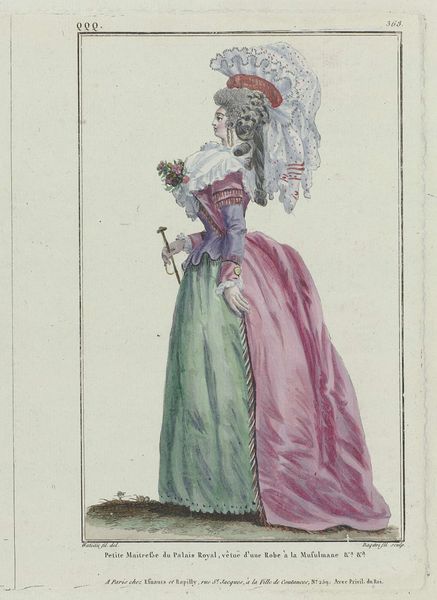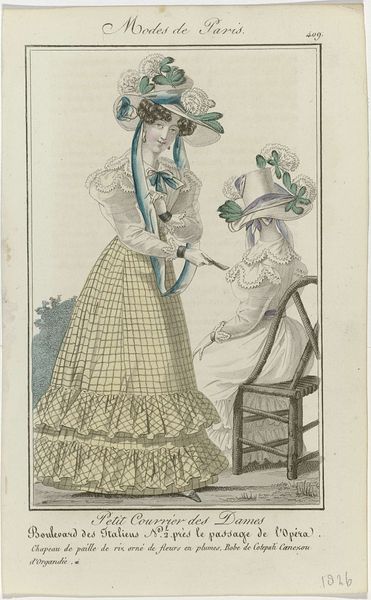
drawing, print, watercolor
#
drawing
#
16_19th-century
# print
#
watercolor
#
historical fashion
#
romanticism
#
19th century
#
watercolour illustration
#
watercolor
Dimensions: height 192 mm, width 113 mm
Copyright: Rijks Museum: Open Domain
This fashion plate, published in Paris in 1824, uses line engraving and watercolor to depict an ensemble from the atelier of T. Langriliet. It showcases an ‘habit d'amazone,’ a riding habit made from ‘drap’ – a woollen cloth prized for its drape and durability. The production of such a garment involved a range of skilled labor. Wool would be sorted, spun into yarn, and woven into cloth, before being tailored, fitted and sewn. The finishing touches, such as the olive-shaped ornaments on the bodice, would be crafted by specialized makers. Even the print itself depended on division of labor, from the designer to the engraver to the colorist. ‘Modes de Paris’ like this one were produced in large quantities, reflecting the rise of consumer culture. They fueled the fashion industry by disseminating ideas, and whetting the appetites of elite clientele. By considering the skilled labor and complex systems of production behind seemingly simple images, we can understand them as integral parts of a wider social and economic fabric.
Comments
No comments
Be the first to comment and join the conversation on the ultimate creative platform.
